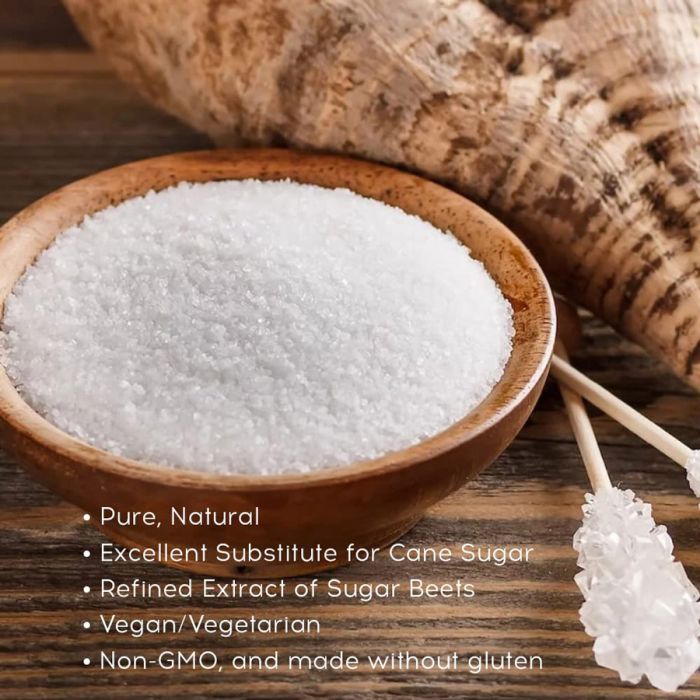Comprehending the Nutritional Perks of Beetroot Sugar Vs Walking Stick Sugar for Health Conscious Customers
When examining the nutritional implications of beetroot sugar versus cane sugar, health-conscious customers locate that both selections largely contain sucrose and deal similar calorie worths, each contributing about 16 calories per teaspoon. Despite this resemblance, neither kind provides significant health benefits, as they are devoid of essential nutrients. Exploring the more comprehensive effects, consisting of environmental considerations and lasting health and wellness results of sugar consumption, may illuminate a lot more nuanced differences between these 2 sugars.
Nutritional Profile and Caloric Worth of Beetroot Sugar and Walking Cane Sugar
Although both beet sugar and walking stick sugar are mostly made up of sucrose, their dietary accounts and calorie values are remarkably similar. Each supplies around 16 calories per tsp and is composed virtually entirely of carbohydrates, with minimal amounts of protein or fat. These sugars likewise lack considerable quantities of vitamins or minerals. The improvement procedure strips away most of the integral nutrients, providing both kinds virtually similar in regards to nourishment. There are trace distinctions in the pollutants that stay after handling, which can somewhat impact the flavor and color of the sugars, however these are negligible in terms of wellness influence. For customers concentrating on nutritional effect, the choice between beet and cane sugar is extra concerning individual choice or prospective environmental issues as opposed to dietary differences. Both should be consumed in moderation within a well balanced diet plan due to their high caloric content and absence of essential nutrients (beet sugar vs cane sugar).
Ecological Impact and Sustainability of Sugar Manufacturing
While the nutritional distinctions between beetroot sugar and cane sugar are very little, their production procedures present even more substantial variations, specifically in terms of ecological impact and sustainability. Walking cane sugar production often includes extensive land usage and deforestation, which adds to habitat damage and biodiversity loss. This farming is also linked with high water consumption and water air pollution due to the overflow of chemicals and fertilizers. In comparison, beet sugar production typically needs much less land and can be cultivated in even more temperate environments, which may minimize the need for watering and the connected water resource depletion.
However, beet farming is not without its ecological challenges; it involves considerable power blog here inputs, especially in the north climates where it is expanded, as a result of the demand for longer home heating periods in sugar processing. Both sugar beetroot and sugar walking stick markets are exploring extra sustainable methods, including plant rotation, natural farming, and boosted waste monitoring strategies to reduce these effects.
Health And Wellness Results and Recommendations for Sugar Intake
Regardless of their marginal dietary distinctions, both beetroot sugar and cane sugar can have detrimental wellness effects when eaten over. High consumption of either kind of sugar adds to a variety of health and wellness issues, consisting of obesity, kind 2 diabetes, and heart condition. Both sugars are pure sucrose and deal no crucial nutrients other than calories, causing rapid spikes in blood sugar levels upon intake.


Conclusion
